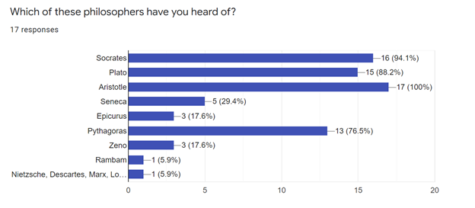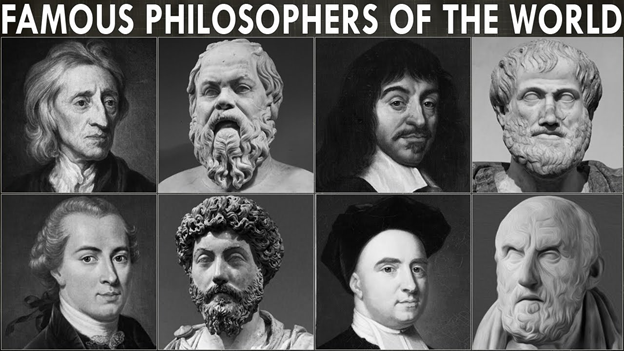BT Students’ Philosophies of Life
September 22, 2021
A personal philosophy is a way people approach life. In this period of self-discovery, high schoolers question what is important to them and ask themselves: what do I live for?
In a survey, Kol BT asked Beth Tfiloh high school students to relate their personal philosophies of life. The answers varied drastically. The three main themes were letting life play out, working hard to improve, and practicing kindness and happiness.
- Let life play out
- “You only live once”
- “Everything happens for a reason” (x2)
- “The journey is more important than the result”
- “Life is good even at its worst”
- “If it won’t matter in five years, don’t get sad about it”
- “Success is just the destination”
- Work hard to improve
- “Work hard, play hard”
- “You’re responsible for everything within your control”
- “Ambition and curiosity are very important traits to strive for”
- “Work ethic”
- “Self-improvement”
“Hard work and ambition can help you to achieve great things” - “Do one thing every day that scares you”
- Kindness and Happiness
- “Follow the Torah. Ask yourself what God wants from you. Be kind to all.”
- “Always be kind even if it’s for no reason”
- “Surround yourself with people who make you the [happiest]”
- “Do whatever makes you happiest”
These three central themes are necessary for a fulfilling life and each builds off of one another. Yes, one should allow life to play out but without hard work, life is passive. However, simply working hard with no calm and relaxation leads to stress and anxiety. The third theme, kindness, and happiness, is the glue — the most important piece. Life means nothing without joy, both in ourselves and those around us.
In the second part of the survey, I asked students about their knowledge of philosophy. 11.8% responded that they are well versed in philosophy, an additional 11.8% said they have no knowledge of philosophy, and the remaining 76.5% stated their knowledge of philosophy is “somewhat.”
Then, I provided a list of famous philosophers to test whether the participants have heard of them. The majority knew of Socrates, Plato, Aristotle, and Pythagoras, however few were aware of Seneca, Epicurus, and Zeno. Some students added their own philosophers such as Rambam, Nietzche, Descartes, Marx, and Locke.
If you would like to learn more about philosophy, I would recommend the podcast “Philosophize This!” by Stephen West as well as books by any of the philosophers mentioned in the survey.
Overall, BT students contain a wide range of personal philosophies and many have a slight knowledge of philosophers and philosophical thought. Though the senior psychology class covers these philosophers, I hope this challenges you to find your own personal philosophy and learn more.



